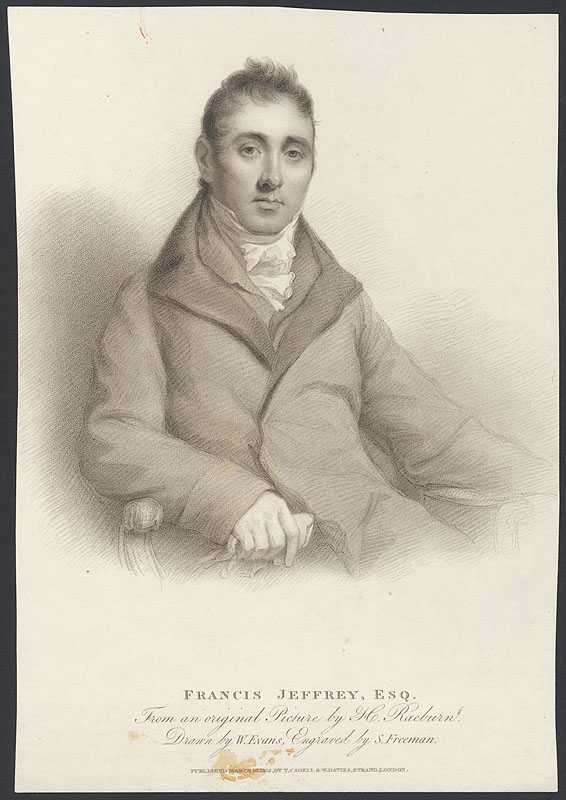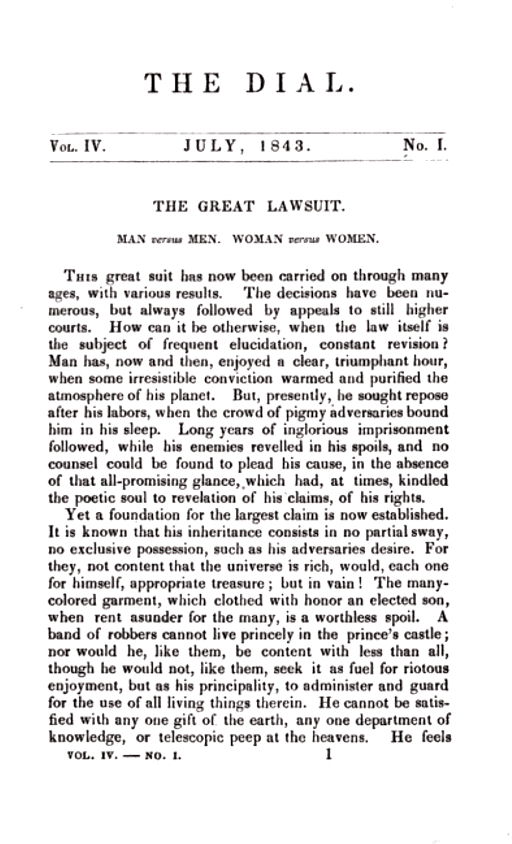|
Secession (magazine)
''Secession'' was an American expatriate little magazine edited by Gorham Munson, Matthew Josephson, and Kenneth Burke. During its two-year, eight issue run, ''Secession'' managed to further the careers of writers like Waldo Frank, Slater Brown, Robert Coates, E. E. Cummings, Marianne Moore, Wallace Stevens, Hart Crane, and William Carlos Williams, among others. Printed in cities like Vienna, Berlin, Reutte, and Brooklyn, New York, ''Secession'' is considered an exile magazine, and has been called the “liveliest” of the little magazines published abroad. In his article “The Interstice between Scylla and Charybdis,” Munson distinguished ''Secession'' from little magazines like ''The Little Review'' and ''Broom'', and stated that the goal for his magazine is to be “neither a personal nor an anthological magazine, but to be a group organ. 'Secession''will make group-exclusions, found itself on a group basis, point itself in a group-direction, and derive its stabil ... [...More Info...] [...Related Items...] OR: [Wikipedia] [Google] [Baidu] |
Little Magazine
In the United States, a little magazine is a magazine genre consisting of "artistic work which for reasons of commercial expediency is not acceptable to the money-minded periodicals or presses", according to a 1942 study by Frederick J. Hoffman, a professor of English. While George Plimpton disagreed with the diminutive connotations of "little", the name "little magazine" is widely accepted for such magazines. A little magazine is not necessarily a literary magazine, because while the majority of such magazines are literary in nature, containing poetry and fiction, a significant proportion of such magazines are not. Some have encompassed the full range of the arts, and others have grown from zine roots. The traditional characteristics of a little magazine include a format, a two-color cover, and a semi-annual or quarterly publishing schedule. Literary magazines that do not qualify as little magazines for these reasons include ''Oxford American'' and the Lindhurst Foundation's ... [...More Info...] [...Related Items...] OR: [Wikipedia] [Google] [Baidu] |
Expatriate
An expatriate (often shortened to expat) is a person who resides outside their native country. The term often refers to a professional, skilled worker, or student from an affluent country. However, it may also refer to retirees, artists and other individuals who have chosen to live outside their native country. The International Organization for Migration of the United Nations defines the term as 'a person who voluntarily renounces his or her nationality'. Historically, it also referred to exiles. The UAE is the country with the highest percentage of expatriates in the world after the Vatican City, with expatriates in the United Arab Emirates representing 88% of the population. Etymology The word ''expatriate'' comes from the Latin words and , from , . Semantics Dictionary definitions for the current meaning of the word include: :Expatriate: :* 'A person who lives outside their native country' (Oxford), or :* 'living in a foreign land' (Webster's). These definitio ... [...More Info...] [...Related Items...] OR: [Wikipedia] [Google] [Baidu] |
Magazines Disestablished In 1924
A magazine is a periodical publication, print or digital, produced on a regular schedule, that contains any of a variety of subject-oriented textual and visual content forms. Magazines are generally financed by advertising, purchase price, prepaid subscriptions, or by a combination of the three. They are categorised by their frequency of publication (i.e., as weeklies, monthlies, quarterlies, etc.), their target audiences (e.g., women's and trade magazines), their subjects of focus (e.g., popular science and religious), and their tones or approach (e.g., works of satire or humor). Appearance on the cover of print magazines has historically been understood to convey a place of honor or distinction to an individual or event. Term origin and definition Origin The etymology of the word "magazine" suggests derivation from the Arabic (), the broken plural of () meaning "depot, storehouse" (originally military storehouse); that comes to English via Middle French and Italian . In ... [...More Info...] [...Related Items...] OR: [Wikipedia] [Google] [Baidu] |
Defunct Literary Magazines Published In The United States
{{Disambiguation ...
Defunct may refer to: * ''Defunct'' (video game), 2014 * Zombie process or defunct process, in Unix-like operating systems See also * * :Former entities * End-of-life product * Obsolescence Obsolescence is the process of becoming antiquated, out of date, old-fashioned, no longer in general use, or no longer useful, or the condition of being in such a state. When used in a biological sense, it means imperfect or rudimentary when comp ... [...More Info...] [...Related Items...] OR: [Wikipedia] [Google] [Baidu] |
John Brooks Wheelwright
John Brooks Wheelwright (sometimes Wheelright) (September 9, 1897 – September 13, 1940) was an American poet from a Boston Brahmin background. He belonged to the poetic ''avant garde'' of the 1930s and was a Marxist, a founder-member of the Trotskyist Socialist Workers Party in the United States. He was bisexual. He died after being struck by an automobile at the intersection of Beacon St. and Massachusetts Avenue in the early morning hours of September 13, 1940. His ''Selected Poems'' was published posthumously a few months later, with an introduction by his friend R.P. Blackmur. Wheelwright was the son of Boston architect Edmund M. Wheelwright. He was descended from the 17th-century clergyman John Wheelwright on his father's side and the 18th-century Massachusetts governor John Brooks on his mother's side. He studied at Harvard University but left without a degree in 1920. He then studied at Massachusetts Institute of Technology before practising as an architect in ... [...More Info...] [...Related Items...] OR: [Wikipedia] [Google] [Baidu] |
Literary Feud
A literary feud is a conflict or quarrel between well-known writers, usually conducted in public view by way of published letters, speeches, lectures, and interviews. In the book ''Literary Feuds'', Anthony Arthur describes why readers might be interested in the conflicts between writers: "we wonder how people who so vividly describe human failure (as well as triumph) can themselves fall short of perfection." Feuds were sometimes based on conflicting views of the nature of literature as between C. P. Snow and F. R. Leavis, or on disdain for each other's work such as the quarrel between Virginia Woolf and Arnold Bennett. Some feuds were conducted through the writers' works, as when Alexander Pope satirized John Hervey in '' Epistle to Dr Arbuthnot''. A few instances resulted in physical violence, such as the encounter between Sinclair Lewis and Theodore Dreiser, and on occasion involved litigation, as in the dispute between Lillian Hellman and Mary McCarthy. History of litera ... [...More Info...] [...Related Items...] OR: [Wikipedia] [Google] [Baidu] |
The Criterion (magazine)
''The Criterion'' was a British literary magazine published from October 1922 to January 1939. ''The Criterion'' (or the ''Criterion'') was, for most of its run, a quarterly journal, although for a period in 1927–28 it was published monthly. It was created by the poet, dramatist, and literary critic T. S. Eliot who served as its editor for its entire run. Eliot's goal was to make it a literary review dedicated to the maintenance of standards and the reunification of a European intellectual community. Although in a letter to a friend in 1935 George Orwell had said "for pure snootiness it beats anything I have ever seen", writing in 1944 he referred to it as "possibly the best literary paper we have ever had". The first issue of the magazine, of which 600 copies were printed, [...More Info...] [...Related Items...] OR: [Wikipedia] [Google] [Baidu] |
The New York Times
''The New York Times'' (''NYT'') is an American daily newspaper based in New York City. ''The New York Times'' covers domestic, national, and international news, and publishes opinion pieces, investigative reports, and reviews. As one of the longest-running newspapers in the United States, the ''Times'' serves as one of the country's Newspaper of record, newspapers of record. , ''The New York Times'' had 9.13 million total and 8.83 million online subscribers, both by significant margins the List of newspapers in the United States, highest numbers for any newspaper in the United States; the total also included 296,330 print subscribers, making the ''Times'' the second-largest newspaper by print circulation in the United States, following ''The Wall Street Journal'', also based in New York City. ''The New York Times'' is published by the New York Times Company; since 1896, the company has been chaired by the Ochs-Sulzberger family, whose current chairman and the paper's publ ... [...More Info...] [...Related Items...] OR: [Wikipedia] [Google] [Baidu] |
The Dial
''The Dial'' was an American magazine published intermittently from 1840 to 1929. In its first form, from 1840 to 1844, it served as the chief publication of the Transcendentalists. From the 1880s to 1919 it was revived as a political review and literary criticism magazine. From 1920 to 1929 it was an influential outlet for modernist literature in English. In January 2023, the name of ''The Dial'' was revived for a new online magazine of international writing and reporting. Transcendentalist journal Members of the Hedge Club began talks for creating a vehicle for their essays and reviews in philosophy and religion in October 1839.Gura, Philip F. ''American Transcendentalism: A History''. New York: Hill and Wang, 2007: 128. Other influential journals, including the ''North American Review'' and the '' Christian Examiner'' refused to accept their work for publication. Orestes Brownson proposed utilizing his recently established periodical ''Boston Quarterly Review'' but mem ... [...More Info...] [...Related Items...] OR: [Wikipedia] [Google] [Baidu] |
World War I
World War I or the First World War (28 July 1914 – 11 November 1918), also known as the Great War, was a World war, global conflict between two coalitions: the Allies of World War I, Allies (or Entente) and the Central Powers. Fighting took place mainly in European theatre of World War I, Europe and the Middle Eastern theatre of World War I, Middle East, as well as in parts of African theatre of World War I, Africa and the Asian and Pacific theatre of World War I, Asia-Pacific, and in Europe was characterised by trench warfare; the widespread use of Artillery of World War I, artillery, machine guns, and Chemical weapons in World War I, chemical weapons (gas); and the introductions of Tanks in World War I, tanks and Aviation in World War I, aircraft. World War I was one of the List of wars by death toll, deadliest conflicts in history, resulting in an estimated World War I casualties, 10 million military dead and more than 20 million wounded, plus some 10 million civilian de ... [...More Info...] [...Related Items...] OR: [Wikipedia] [Google] [Baidu] |




